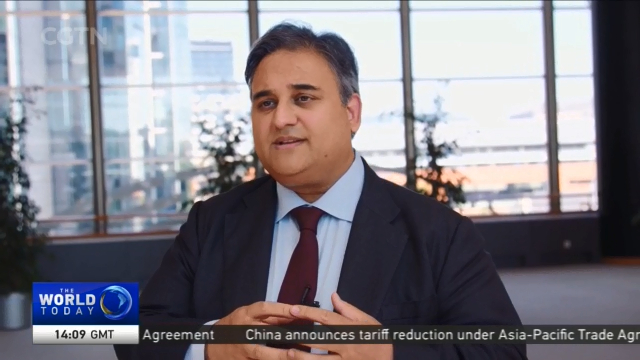
22:19, 27-Jun-2018
EU Migrant Crisis: Member states preparing for full summit on migration
Updated
21:34, 30-Jun-2018
03:13

European Union leaders are preparing for a full summit on Thursday to discuss the refugee crisis. Earlier meetings led to few breakthroughs. Rifts are deepening on how to handle the influx of migrants and solutions are hard to find. CGTN's Mariam Zaidi has more.
Pain, suffering, and sheer desperation. Greek artist Konstantinos Katagas's paintings lay bare the never-ending horrors for those choosing to risk their lives to come to Europe.
KONSTANTINOS KATAGAS GREEK ARTIST "Suddenly the refugee problem arose. Suddenly I learned that people are drowning in boats, pushed out of their homes or forced to leave. No one leaves their home if someone does not force them out or if he cannot stay."
Despite the EU and its member states intensifying efforts to prevent arrivals and outsource migration responsibility to countries outside EU borders, arrivals into Greece and Italy remain high. Italy's new populist government is saying 'no more' and has started to turn ships carrying migrants away. The European Parliament's Italian president says that if no coherent migration policy emerges from the summit, Europe will be in danger.
ANTONIO TAJANI PRESIDENT, EUROPEAN PARLIAMENT "We need to decide, without delay. We need to stop the illegal migration. We need to work a lot with Libya. We need to invest money with Libya and long-term we need to invest money in Africa. And then we need to start debate within the European Council on the debate with the relocation of refugees."
MARIAM ZAIDI BRUSSELS "One compromise that has the backing of some member states is the idea to have regional disembarkation centers. What it entails is having North African countries screen people and separate economic migrants from refugees. The UNHCR says they're open to the idea but already Libya and Tunisia say they're reluctant to play a role."
And the chair of the European Parliament's Civil Liberties committee isn't convinced. He says such policies work against those seeking asylum. Instead, he backs efforts to re-shape the so-called 'Dublin rules' – which require migrants to apply for asylum in the first EU country they enter.
CLAUDE MORAES BRITISH MEP "The EU does though have to react when a big country like Italy is becoming so populist because it threatens the whole of the European Union. Realistically something has to happen. What can happen is something that's on the table; - it's the Dublin reform. I hope this is the route that the European Council takes. And not the lower road of these off-shore asylum centers. If they do this, they will have an unworkable, inhumane policy that will collapse."
European Parliament members have long called on member states to reach consensus on reforming the EU's common migration and asylum rules. In draft guidelines for the EU summit, Council President Donald Tusk has invited Austria – set to take over the six month presidency of the EU - to simply 'continue to do more'. Mariam Zaidi, CGTN Brussels.

SITEMAP
Copyright © 2018 CGTN. Beijing ICP prepared NO.16065310-3
Copyright © 2018 CGTN. Beijing ICP prepared NO.16065310-3